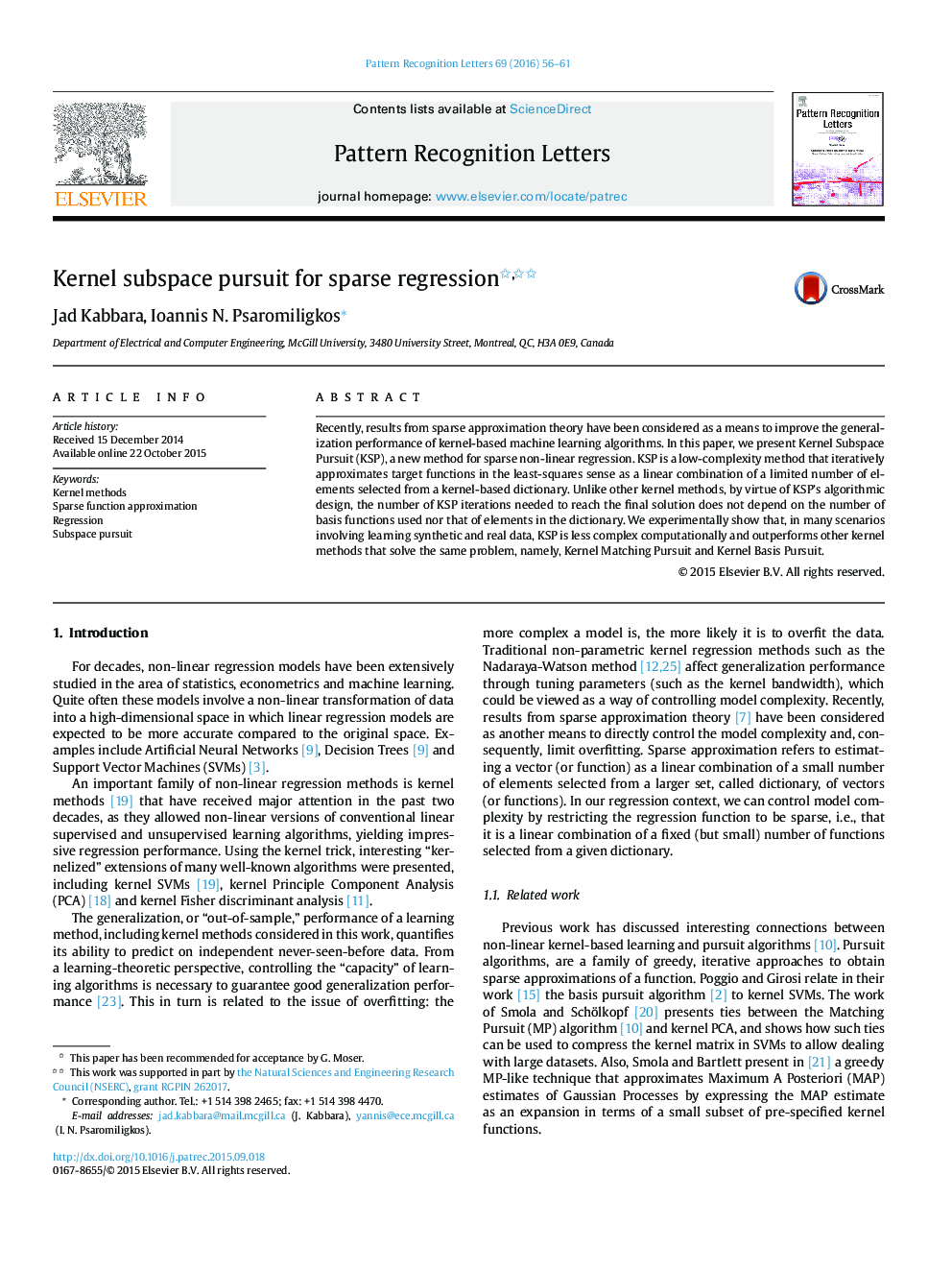| Article ID | Journal | Published Year | Pages | File Type |
|---|---|---|---|---|
| 533975 | Pattern Recognition Letters | 2016 | 6 Pages |
•This paper introduces a kernel version of the Subspace Pursuit algorithm.•The proposed method, KSP, is a new iterative method for sparse regression.•KSP outperforms and is less computationally intensive than related kernel methods.
Recently, results from sparse approximation theory have been considered as a means to improve the generalization performance of kernel-based machine learning algorithms. In this paper, we present Kernel Subspace Pursuit (KSP), a new method for sparse non-linear regression. KSP is a low-complexity method that iteratively approximates target functions in the least-squares sense as a linear combination of a limited number of elements selected from a kernel-based dictionary. Unlike other kernel methods, by virtue of KSP’s algorithmic design, the number of KSP iterations needed to reach the final solution does not depend on the number of basis functions used nor that of elements in the dictionary. We experimentally show that, in many scenarios involving learning synthetic and real data, KSP is less complex computationally and outperforms other kernel methods that solve the same problem, namely, Kernel Matching Pursuit and Kernel Basis Pursuit.
